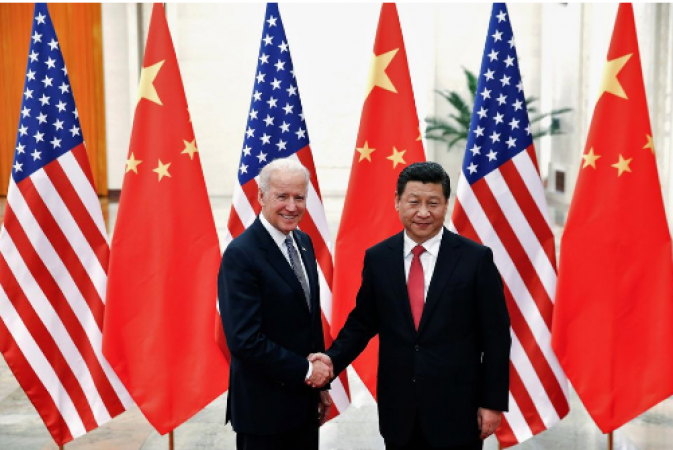
Washington: US President Joe Biden said that he would speak with Chinese President Xi Jinping within the next two weeks and expressed some doubts about Nancy Pelosi's visit to Taiwan. After accompanying him on a day-trip to Massachusetts, Biden told reporters in Washington, "I think I will talk to President Xi within the next 10 days."
Calling each other would be months after their March virtual summit. This will be their second direct encounter since Russia's invasion of Ukraine and their first since the warm exchanges between their defense secretaries at the Shangri-La Dialogue in Singapore.
The context of the forum, where Chinese Defense Minister General Wei Fenghe rejected the "so-called Taiwan Relations Act", was set by Biden's May statement if Beijing were to reunite Taiwan with the mainland by force. If attempted, the US would intervene militarily.
Almost every time Biden administration officials discuss US policy toward China, they cite the law. This allows Washington to support the island's ability to defend itself militarily.
Even before Biden's remarks about protecting the self-governing island, Taiwan has been a constant source of bilateral tensions. Beijing has accused Washington of changing its stance on the matter by repeatedly engaging with Taipei officials.
In response, forces on the mainland have increased infiltration into Taiwan's air defense sector in an ongoing effort to prevent the island's administration from consolidating ties with the US or any other country.
Recent reports of Pelosi's intention to visit the island escalated those tensions once again.
Asked about the possibility of his visit on Wednesday, Biden said the military can't think of a good idea at the moment, but I'm not sure what the status quo is.
Asked whether he intended to remove the harsh tariffs imposed on Chinese imports by his predecessor Donald Trump four years ago, another area where the two sides have clashed, Biden vetoed the question.
When Biden was asked what he would say to his Chinese counterpart about tariffs, "I'll tell him to have a good day."
Meanwhile, the Biden administration has increased its support for the Eastern European nation with shipments of military hardware and other aid, resulting in Beijing's refusal to condemn Russia's invasion of Ukraine, a conflict that has fueled food shortages around the world. fueled the shortage. fueled the shortage. fueled the shortage. and raised energy prices.
US National Security Adviser Jake Sullivan said last month that the US was determined to prevent "aggressors" like China from taking similar action.
Rather than attempt to pressure Beijing to change its policies, the Biden administration has favored proactive diplomacy in Asia to "change the strategic environment" around China, as US Secretary of State Antony Blinken described in a policy in May. was described in. was described in. was described in. Said in the speech.
The announcement of the Indo-Pacific Economic Framework at the conclusion of Biden's first visit to East Asia, the formation of the Ocus alliance with Britain and Australia, and his discussions with ASEAN leaders at a special summit are some examples.
China is assumed to be better compared to the EU at finishing projects in Africa
US Warns Putin Ignoring His Own Talking points
US gasoline inventories rise, oil price continues to decline
According to the CIA director approximately 15,000 Russians are killed in the Ukraine War